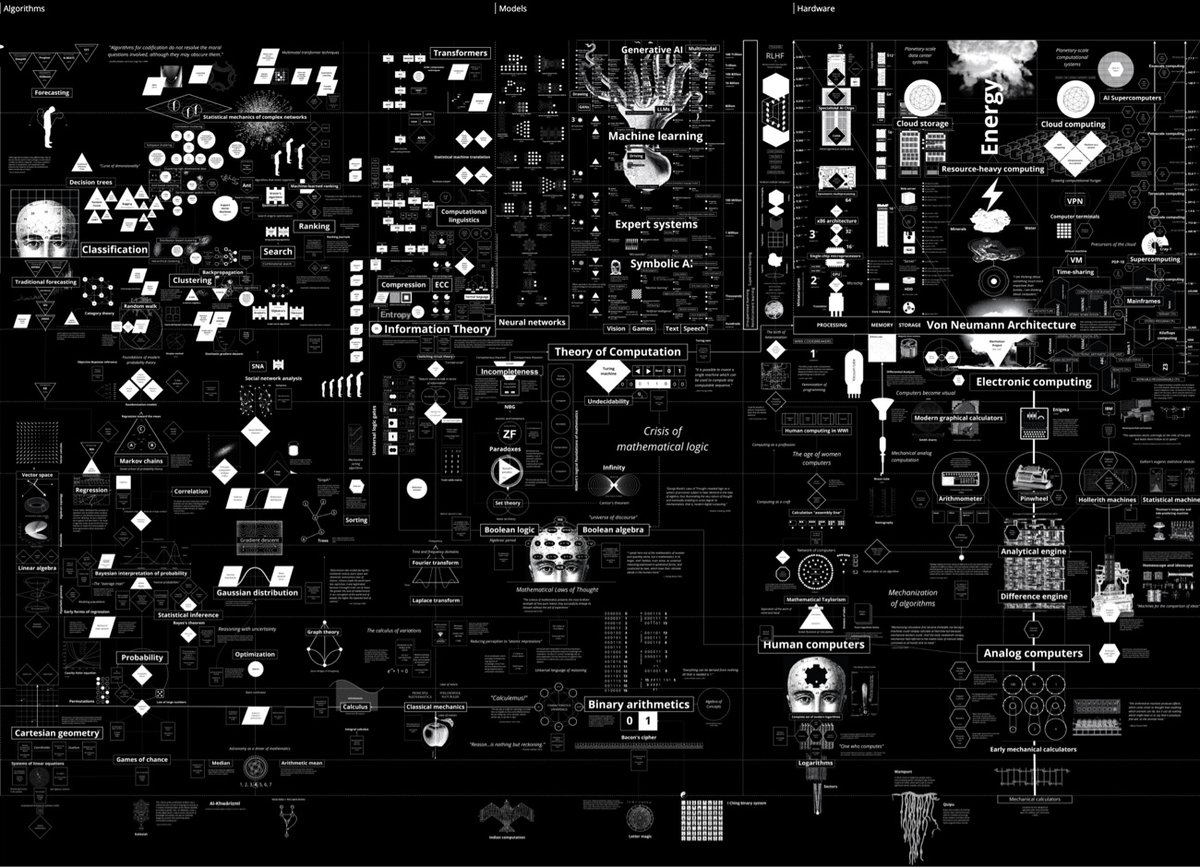A Genealogy of Technology and Power Since 1500
This is kind of amazing: Calculating Empires is a project by Kate Crawford and Vladan Joler attempting to map how technology and human social structures have changed and evolved since 1500. This is just a tiny bit of the large genealogical map:

Calculating Empires is a large-scale research visualization exploring how technical and social structures co-evolved over five centuries. The aim is to view the contemporary period in a longer trajectory of ideas, devices, infrastructures, and systems of power. It traces technological patterns of colonialism, militarization, automation, and enclosure since 1500 to show how these forces still subjugate and how they might be unwound. By tracking these imperial pathways, Calculating Empires offers a means of seeing our technological present in a deeper historical context. And by investigating how past empires have calculated, we can see how they created the conditions of empire today.
See also Anatomy of an AI System. (via @kurtbandersen)





Comments 4
I've been wondering of late how much we've progressed other than in the technological area.
TBH, being in the US at this time might be inciting a bias but I'm wondering. Are we better than we were five hundred years ago?
I mean, objectively, more people have more leisure time, don't have to organize their entire year around growing/finding/storing food, have access to vaccines and antibiotics, durable clothing and shelter, safe water, access to literacy, etc. I do think it's important to not lose sight of that.
Is that all well-distributed enough? Def no! And lots of new bad stuff. But would I rather live in the 1500s? Probably not.
There has been some research that people in pre-industrial societies actually did less work than we do.
Pre-industrial workers had a shorter workweek than today's
Barring the leisure notion, which I'm fine with, I'd still personally rather live in the world of vaccines and antibiotics.
Hello! In order to comment or fave, you need to be a current kottke.org member. If you'd like to sign up for a membership to support the site and join the conversation, you can explore your options here.
Existing members can sign in here. If you're a former member, you can renew your membership.
Note: If you are a member and tried to log in, it didn't work, and now you're stuck in a neverending login loop of death, try disabling any ad blockers or extensions that you have installed on your browser...sometimes they can interfere with the Memberful links. Still having trouble? Email me!
In order to comment or fave, you need to be a current kottke.org member. Check out your options for renewal.
This is the name that'll be displayed next to comments you make on kottke.org; your email will not be displayed publicly. I'd encourage you to use your real name (or at least your first name and last initial) but you can also pick something that you go by when you participate in communities online. Choose something durable and reasonably unique (not "Me" or "anon"). Please don't change this often. No impersonation.
Note: I'm letting folks change their display names because the membership service that kottke.org uses collects full names and I thought some people might not want their names displayed publicly here. If it gets abused, I might disable this feature.
If you feel like this comment goes against the grain of the community guidelines or is otherwise inappropriate, please let me know and I will take a look at it.
Hello! In order to leave a comment, you need to be a current kottke.org member. If you'd like to sign up for a membership to support the site and join the conversation, you can explore your options here.
Existing members can sign in here. If you're a former member, you can renew your membership.
Note: If you are a member and tried to log in, it didn't work, and now you're stuck in a neverending login loop of death, try disabling any ad blockers or extensions that you have installed on your browser...sometimes they can interfere with the Memberful links. Still having trouble? Email me!